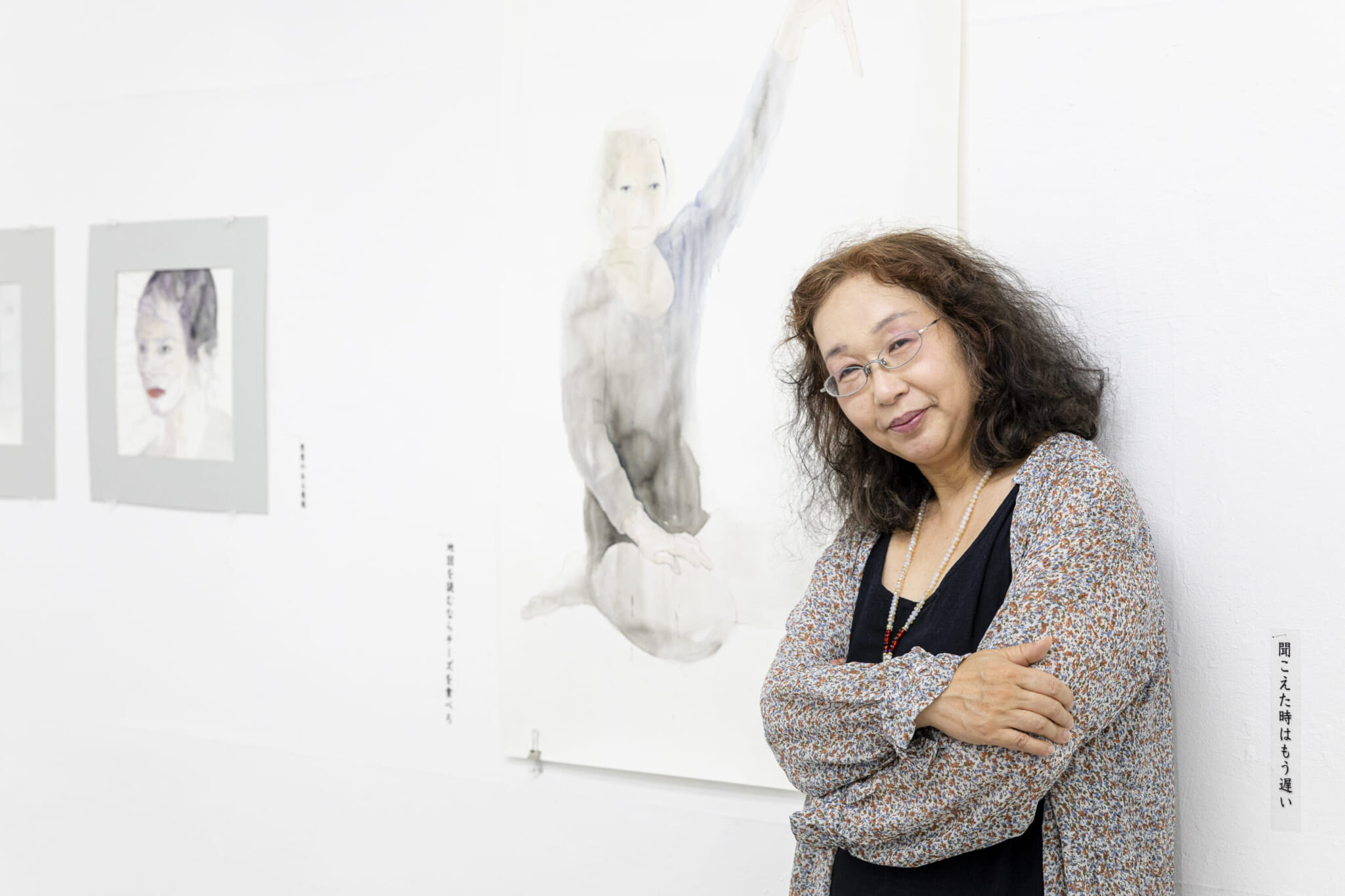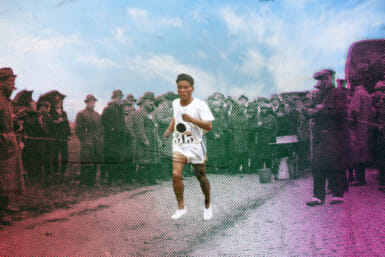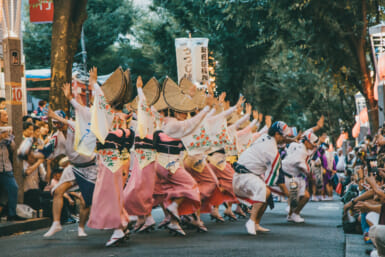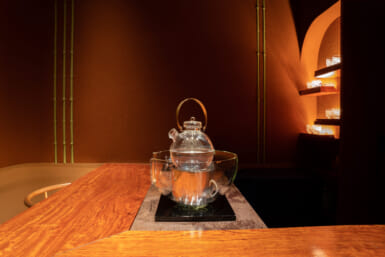Miyuki Ichijo is a multimedia artist in her 60s whose work has traversed media and continents. Born in Fukushima Prefecture, she studied at the German art school Kunstakademie Düsseldorf before returning to Japan in 2001. After taking a hiatus from her art, which explores complex and sometimes dark emotions, she resumed her practice in 2017.
Can you describe your creative practice?
I work in a small home studio in Saitama Prefecture making drawings, paintings and prints. I began doing printmaking seriously about a year ago. I started out in illustration in my 20s.
Do you think being from Fukushima Prefecture has influenced your work?
I grew up in Date city, in the central part of the prefecture. I don’t think being from Fukushima has had much of an impact on my art, but the March 2011 disasters were a shock that made me reevaluate things in a way that probably does materialize in my work. For one thing, it deepened my fascination with human psychology. I have family members in Miyagi Prefecture who experienced tragedies due to the tsunami. Also, the Chernobyl meltdown of 1986 happened while I was traveling through Europe, and to see a similar incident occur so close to home felt like history repeating. In some ways, my art is an attempt to process these events.
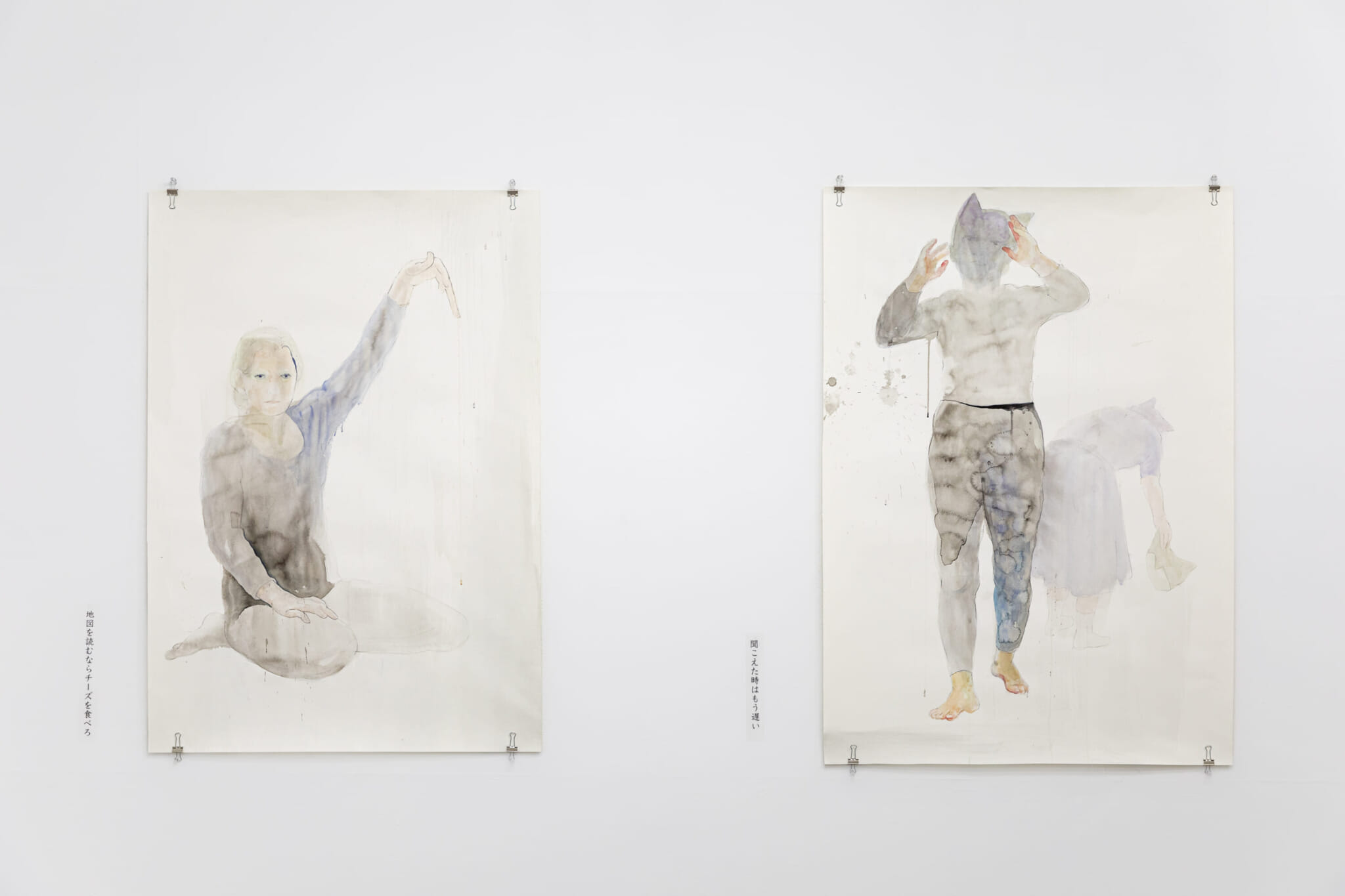
If you want to read a map, eat cheese, 2023, Watercolor on paper and When you hear it, it’s too late, 2023, Watercolor on paper
In Germany, you studied with the conceptual artist Rosemarie Trockel. Has she had a lasting influence on you?
She was an incredible teacher. Even before she was my professor, I was deeply impressed by her drawings, and she just happened to take a position at my school in Düsseldorf. She was an early adopter of computers in art classes at the academy; this would’ve been around 1995 or 1996. The style and themes of her work continue to influence the depictions of people and their emotional lives. Cindy Sherman and Rebecca Horn are two more artists I admire.
Your work often depicts human figures with an atmosphere of mystery or something sinister. Is there anything in particular you want to convey or explore with this style?
What I want to express is that humans are foolish, but also supremely interesting. If we were all godlike, we’d be boring; it’s our weaknesses and struggles that give us depth and humanity. I like observing the tensions between people’s inner feelings and outward projections. I’m always asking “Why?” — that may be an old habit from art school.
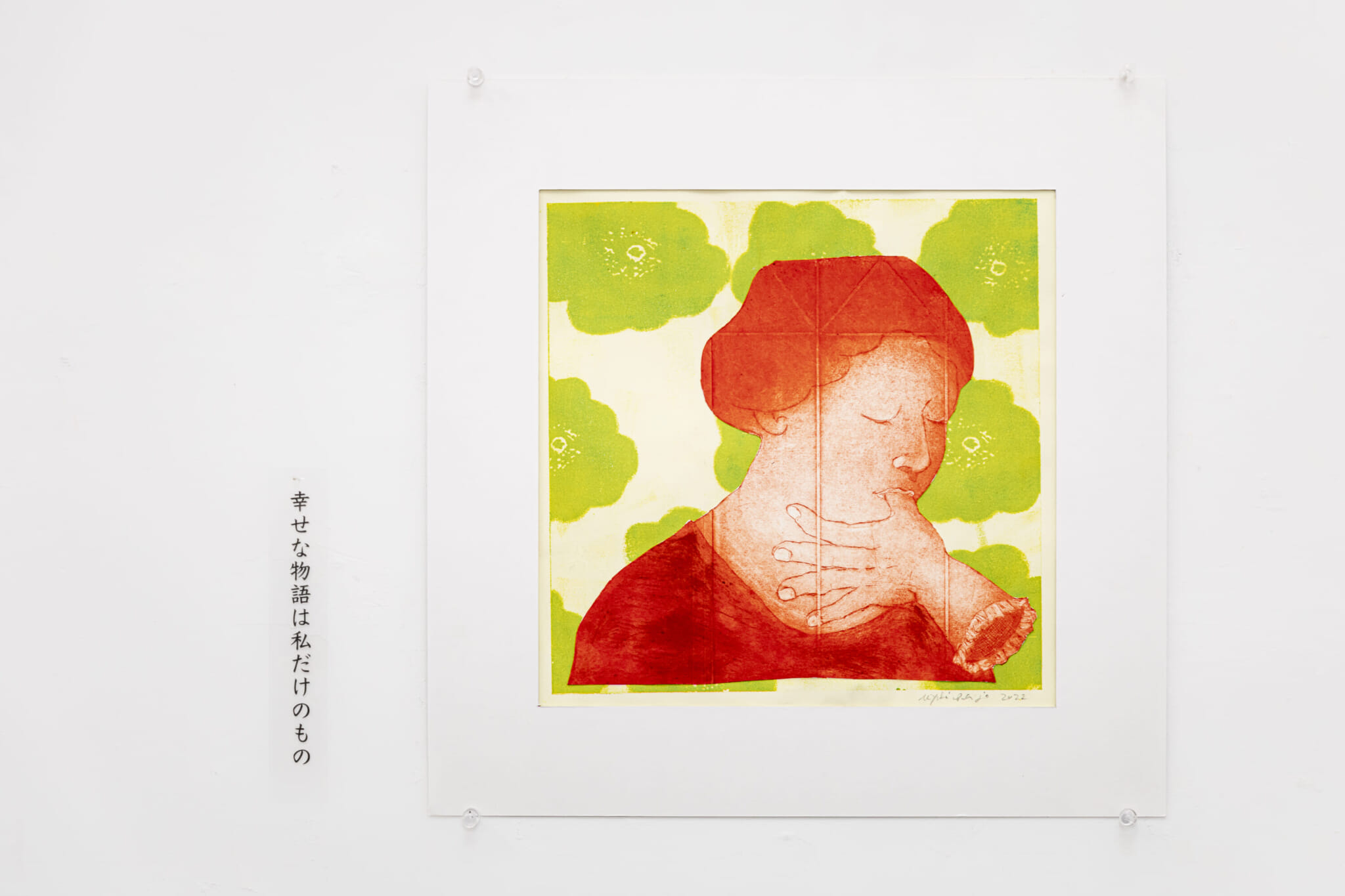
Happy stories are mine alone, 2022, Drypoint on paper
Your practice has shifted from illustration to conceptual art, painting, installations and printmaking. What have you learned as you’ve continued to pursue different media?
I mostly work in the two-dimensional arts. Professor Trockel encouraged us to start with concepts and not get too hung up on the media. I’ve realized over time, though, that what I enjoy the most after all is drawing. I tried copperplate engraving, but the materials are expensive and can’t really keep pace with my ideas, so I’ve started doing engravings on milk cartons. It’s an inexpensive and forgiving material that leaves nice strong marks, and I enjoy incorporating the packaging’s pre-existing lines into my pictures.
You continue to hold exhibitions internationally. Do you notice any differences between the art scenes in Japan versus overseas?
I feel like non-Japanese artists tend to leave more room for interpretation in their work, whereas Japanese artists prize a sense of perfection or completion. Also, in Germany, there are free days at museums. People with babies, young couples, people without much money can enjoy art too. It would be nice if Japanese museums had free days at least once a month. It would foster art appreciation here and maybe lead to more people buying art. I do see signs Japan is gradually changing, though. There are more young collectors than before — I’d like to see the contemporary art scene here grow.
Find more of Miyuki Ichijo’s work on Instagram at @222_miyukiichijo. Also see Ichijo’s work in person at Atelier K Art Space in Yokohama from August 9 to August 19.

